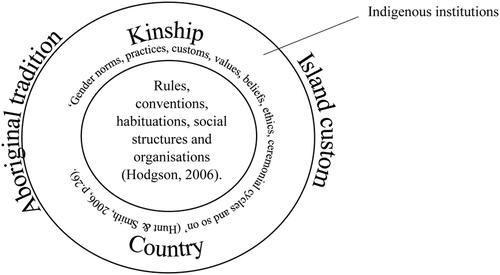Indigenous institutions and local government in the Torres Strait
Abstract
The relationships between local governments and Indigenous institutions in Australia are unstudied, despite both being oriented to the local level. Related research focuses on the performance of Indigenous local governments, Indigenous forms of governance and its relation to local government, relations between local governments and Indigenous communities, and the intercultural dynamics of Indigenous and Western governance frameworks in local governments. This article presents the findings of a study that examines relations between local governments and Indigenous institutions in the Torres Strait, a relationship that is framed by s. 9(3) of the Local Government Act 2009 (Qld) (LGA) that allows local governments to ‘take account of Aboriginal tradition and Island custom’. A framework adapted from health-related studies, consisting of three alternative policy approaches—mainstreaming, indigenisation, and hybridisation—is used in this study to characterise relationships between local governments and Indigenous institutions. Kinship and country, two important Indigenous institutions, are marginalised in Queensland's mainstream system of local government, which in turn creates obstacles for Aboriginal and Torres Strait Islander people from participating and engaging in local government processes.
Points for practitioners
- Government that does not recognise the institutions which are fundamental to how Indigenous people govern will marginalise them from power.
- Indigenous institutions are legitimate actors whose voice must be considered within mainstreaming discussions.
- Representation within indigenous institutions influences local government relations.


 求助内容:
求助内容: 应助结果提醒方式:
应助结果提醒方式:


